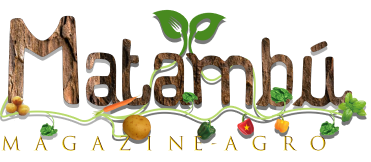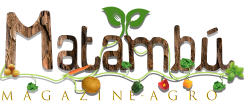[ad_1]
Last week, the Federal Government of Nigeria introduced that it’s working with Brazil to provide and distribute 10,000 tractors to farmers nationwide. The Minister of Agriculture and Rural Development, Dr Mohammad Mahmood Abubakar, disclosed this on the opening of Africa’s Agricultural Machines and Equipment Technology Expo in Abuja.
The minister acknowledged, “The purpose of the expo was also to expose African Farmers to cost-effective farm machines, new farming technologies, to increase foreign direct investments, as well as create business among farm products, producers and processors. It is also a clarion call to bring succour to the drudgery nature of Nigeria’s farm practices to encourage the teeming youths to embrace the agricultural sector. The quest for food self-sufficiency cannot be achieved using the old method of rudimentary tools.”
Abubakar added that the partnership with Brazil would guarantee the supply of 10,000 models of tractors, 50,000 models of various implements and tools, 142 turnkey factories for Agro Processing and coaching of the undertaking beneficiaries for over 5 years.
This growth is important to expedite agricultural productivity within the nation. Several components like local weather change, bursting inhabitants, the COVID-19 pandemic and not too long ago the Russian-Ukraine warfare have proven the necessity for Africa to urgently attain meals autonomy. The solely means to obtain that is to enhance the mechanization stage on the continent, which is kind of low.
Africa has the bottom variety of tractors per farmer globally. Thus, yields per hectare are low. According to the UN Food and Agriculture Organization (FAO), Africa has fewer than two tractors per 1,000 hectares of cropland in contrast with ten tractors per 1,000 hectares in South Asia and Latin America.
The ratio is about ten tractors per 100 hectares in Nigeria in contrast to 241 tractors per 100 hectares in Indonesia. For Nigeria to obtain meals sufficiency by mechanised farming, no fewer than one million tractors are wanted. Jehiel Oliver, the founding father of Hello Tractor, a tractor-hailing firm in Africa, places the quantity at greater than 750,000 tractors for Nigeria to be on the worldwide common. Regardless of the variations in statistics, it’s evident Nigeria is tractor poor, and there may be an pressing want for added tractors to feed its teeming inhabitants.
The short-term influence of those new tractors would mirror in elevated agricultural output. When we (Nigeria) start to develop what we eat and eat what we develop in enough portions, our over-reliance on meals importation will dwindle. Last yr the Federal Government spent a whopping $1.68bn on meals importation from January to September. This is as a result of our native provide cannot cater for our native calls for. If this quantity is diverted and used to fill the mechanization hole within the nation, there are possibilities the nation will as soon as once more reclaim its wonderful agricultural previous.
Momentously, the event may appeal to extra overseas funding within the discipline. Bridging the mechanization hole within the sector is just not the only real duty of the federal government. It requires a concerted effort with the non-public sector. Outside the Brazil-Nigeria partnership, we’re seeing this play out with Heifer International’s $4.5 million funding in Hello Tractor to boost tractor financing in Nigeria and different African nations. The new growth may forged a brighter highlight on this sector.
[ad_2]
Source link




![Africa's manufacturing sector in 2021 [Business Africa]](https://matambu-agromag.com/wp-content/uploads/2022/06/1656085363_hqdefault-120x86.jpg)





